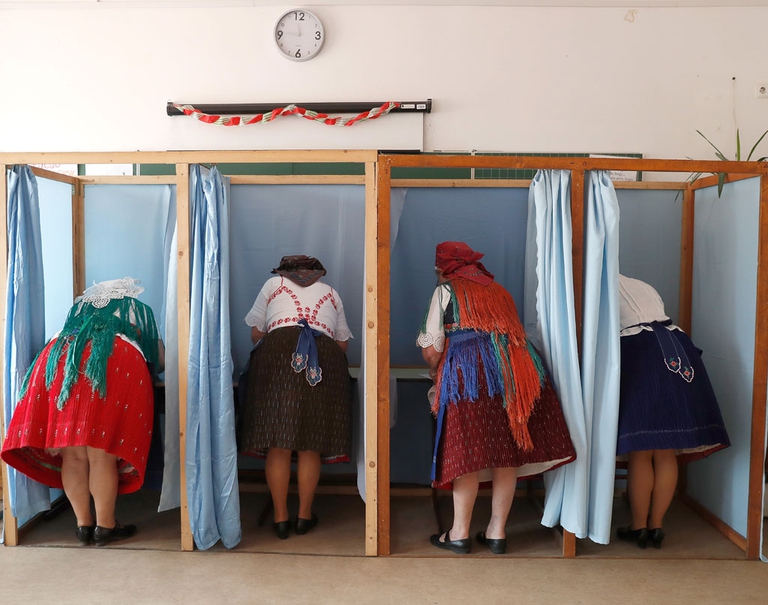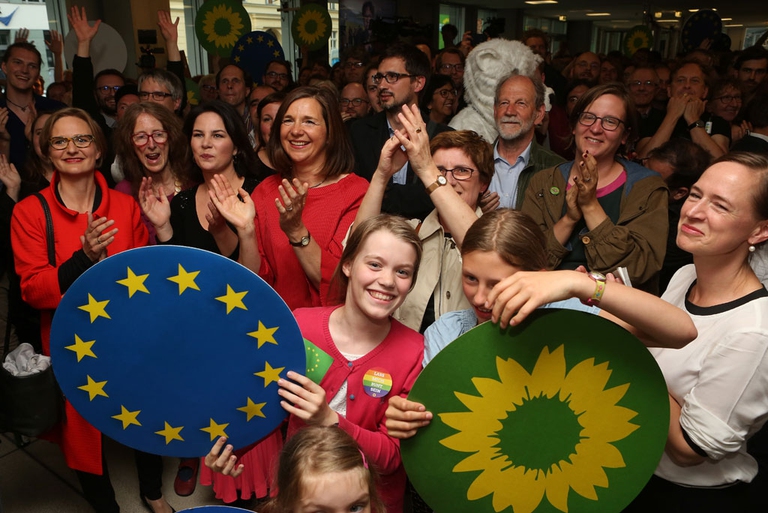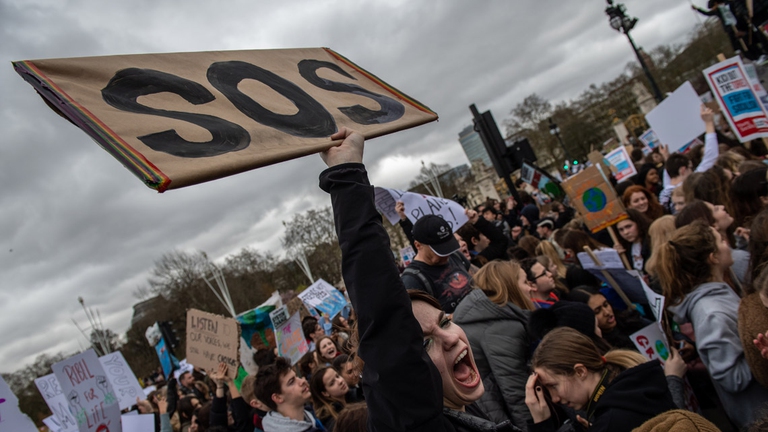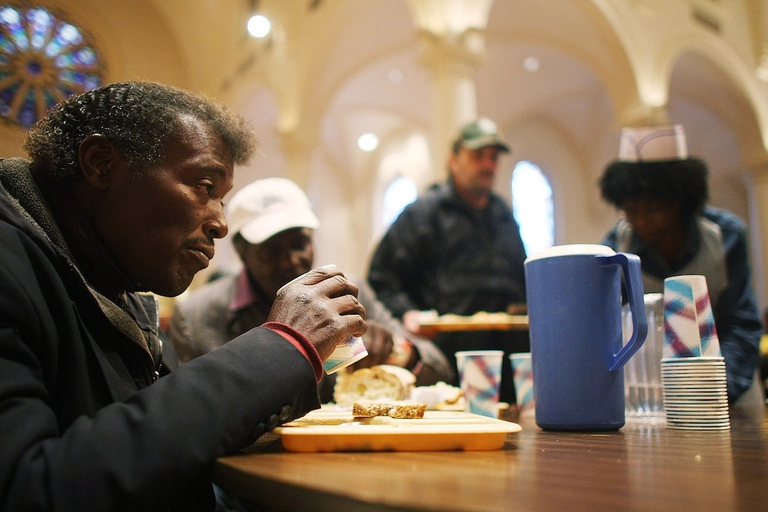
South African court dismisses a major lawsuit by 140,000 Zambian women and children against Anglo American for Kabwe lead poisoning. A setback for affected communities enduring the lasting impact of lead contamination.
by Caterina Sarfatti, Head of Inclusive climate action at C40 Cities At the end of May, 200 million people from 28 different countries went to vote for the European Parliament. The election’s 50.5 per cent voter turnout rate was the highest in twenty years. People tend to take it for granted, but the European Union
At the end of May, 200 million people from 28 different countries went to vote for the European Parliament. The election’s 50.5 per cent voter turnout rate was the highest in twenty years.
People tend to take it for granted, but the European Union (and related bodies) is a revolutionary institution: a political assembly representing half a billion people, a court protecting individual human rights against violations carried out by the State, and the only supranational entity in the world that can truly legislate and adopt binding policies for more than one country. In short, it is a critical asset when facing challenges that transcend national boundaries.
Read also: 10 environmental victories you didn’t know were “Made in Europe”
It is hard to identify a clear winner or loser in this election. Far-right parties can point to successes in Hungary, Italy, and partially France and the UK. The social democrats can point to victories in Spain, Portugal, Sweden and Holland. The centre-right can point to the fact that the European People’s Party is yet again the biggest group in Parliament.
Read also: European elections 2019: all the results, and what they mean for the climate
However, as fragmented as Europe might seem, one thing is clear. In the recent elections, we were expecting a nationalist, anti-EU wave; instead we saw a green, pro-European one. Green parties scored 20 per cent in Germany, 15 per cent in Ireland and Finland, nearly 19 per cent in Luxembourg, 13 per cent in France and Denmark, and 12 per cent in the UK. The progressive and social democratic parties that grew in popularity had increased their focus on the climate crisis and its resolution. Polling just before the election showed that in Germany climate change was the issue voters cared most about, overtaking immigration.
Newspapers around Europe are already talking about “the Greta Effect”, crediting this green wave to 16-year-old climate activist Greta Thunberg. But what Greta and the youth strikers from around the world are asking for is not only to put the climate crisis at the centre of Europe’s political agenda. They are also demanding social justice, understanding that one is intrinsically connected to the other.
It will not be possible to overcome the climate crisis without addressing what fuels nationalist and populist movements: inequality. Bold, ambitious climate action can be an incredibly powerful way to create more jobs and improve health and the quality of life of those groups that have been historically marginalised by our fossil fuel economy. As French economist Thomas Piketty has recently put it: “The rage that feeds nationalism is fomented by the absence of a more just fiscal and social model”. The radical ecological transition that Europe — and the world — desperately needs must be fair and inclusive.
Mayors are on the frontline of delivering bold climate action and recognise the need to jointly tackle inequality and climate change in order to create healthy, sustainable and inclusive cities. Cities like Paris and Barcelona have recently published climate plans that comply with the goals of the Paris Agreement and have a strong focus on inclusion, environmental justice and energy poverty reduction. Cities like Oslo are recognizing the importance of involving workers, their families and unions in the planning and in delivery of their climate policies and have established “just transition” taskforces to advance job growth and environmental targets jointly.
Read also: Cities are where the future happens first. An open letter by the mayors of Paris, Tokyo, Sydney and Cape Town
Outside of Europe, mayors like Eric Garcetti in Los Angeles are leading the way by establishing ambitious and pragmatic “Green New Deals” that aim to drastically reduce emissions while tackling social inequality.
Mayors are not only taking action locally — they are also sharing knowledge amongst themselves and taking a stand at the global level. Last year at the Global Climate Action Summit in San Francisco, 33 mayors pledged to increase community-led development, inclusive climate action and infrastructure projects that achieve major social and economic benefits in low-income communities. The C40 Cities Inclusive Climate Action programme enables mayoral leadership and provides cities with the support they need to plan, build consensus and deliver climate action that is equitable and beneficial for all.
These mayors have found that by putting forward a program that addresses the climate and inequality crisis together, they can avoid the trap of far-right claims that climate action is only for the elite. Cities already have the expertise, experience and solutions we need to address the challenges to come, and national governments must listen and support them. New members of parliament should bring this knowledge and these practices to Brussels and Strasbourg to inform the next cycle of European politics.
Read also: 12 pioneering mayors commit to create green and healthy cities
No matter what happens at the national level, European mayors will continue to make their voices heard. Earlier this month, more than 200 mayors wrote to the EU Council calling for the EU to peak emissions by next year, halve emissions by 2030, ensure a just transition, remove fossil fuel subsidies and commit all member states to binding net-zero targets by 2050.
These mayors understand that we need investments and strong policies that are capable of addressing the inequality and climate crisis jointly, breaking down traditional silos of European policies and funding which put climate and environment on one side and social and economic affairs on the other.
Young people and the new environmental movement have given us one final chance. What could have been an election that carried a strong anti-EU and extreme right vote — which would have potentially destroyed Europe as it is today — did not happen, thanks in large part to the rise of the youth climate strikes and the strengthening of public awareness around the climate crisis.
To tackle this truly monumental challenge and safeguard the future of our Planet and its people, we will need transnationalism, not nationalism. The young climate strikers know this. If Europe truly wants to save itself and fulfil Ventotene’s dream, it must live up to their demands and ambitions. A way exists.
Siamo anche su WhatsApp. Segui il canale ufficiale LifeGate per restare aggiornata, aggiornato sulle ultime notizie e sulle nostre attività.
![]()
Quest'opera è distribuita con Licenza Creative Commons Attribuzione - Non commerciale - Non opere derivate 4.0 Internazionale.
South African court dismisses a major lawsuit by 140,000 Zambian women and children against Anglo American for Kabwe lead poisoning. A setback for affected communities enduring the lasting impact of lead contamination.
Controversial African land deals by Blue Carbon face skepticism regarding their environmental impact and doubts about the company’s track record, raising concerns about potential divergence from authentic environmental initiatives.
Majuli, the world’s largest river island in Assam State of India is quickly disappearing into the Brahmaputra river due to soil erosion.
Food imported into the EU aren’t subject to the same production standards as European food. The introduction of mirror clauses would ensure reciprocity while also encouraging the agroecological transition.
Sikkim is a hilly State in north-east India. Surrounded by villages that attracts outsiders thanks to its soothing calmness and natural beauty.
Sikkim, one of the smallest states in India has made it mandatory for new mothers to plant saplings and protect them like their children to save environment
Chilekwa Mumba is a Zambian is an environmental activist and community organizer. He is known for having organized a successful lawsuit against UK-based mining companies.
What led to the Fukushima water release, and what are the impacts of one of the most controversial decisions of the post-nuclear disaster clean-up effort?
Nzambi Matee is a Kenyan engineer who produces sustainable low-cost construction materials made of recycled plastic waste with the aim of addressing plastic pollution and affordable housing.












